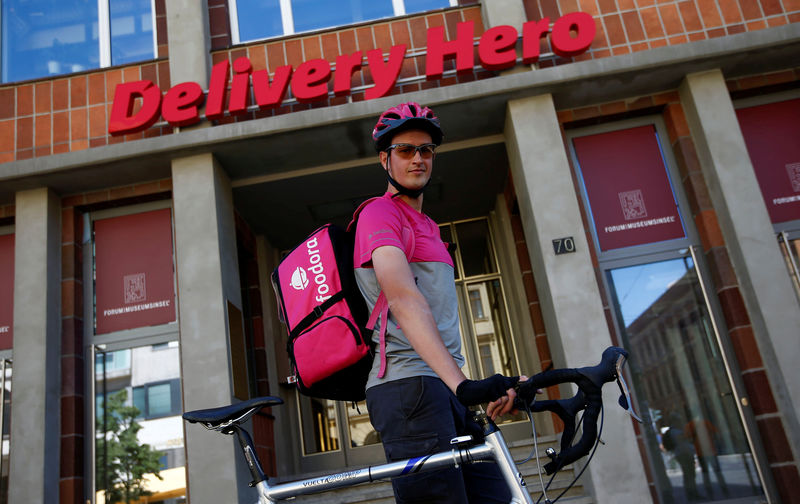TSX runs higher on rate cut expectations
Investing.com -- Delivery Hero's (ETR:DHER) shares dropped by over 11% after the company announced it would begin employing delivery riders in Spain.
This move follows a series of legal and regulatory pressures under Spain's "Rider Law," aimed at reclassifying gig workers as employees rather than independent contractors.
Delivery Hero’s decision applies specifically to its Spanish subsidiary, Glovo, and represents an effort to address ongoing disputes and fines related to worker classification.
As per analysts at Jefferies, the company's pivot to an employed rider model is a strategic effort to mitigate the risks of escalating fines and enhance its negotiating position with Spanish regulators.
Delivery Hero has faced fines for alleged misclassification of riders, with liabilities potentially escalating to €440-770 million, as outlined in the company's FY24 reports.
Despite the company’s position that these fines lack legal grounding, the strategic compliance with the Rider Law could provide a basis for dialogue with the Spanish government, potentially leading to a negotiated settlement.
The financial implications of this decision are substantial. Jefferies projects that the transition will negatively impact Glovo Spain's Adjusted EBITDA by about €100 million in FY25.
However, the analysts noted that Delivery Hero remains optimistic about achieving positive EBITDA in Spain by that year.
Broader European operations are expected to show incremental gains, with Delivery Hero projecting €68 million and €149 million in EBITDA for FY25 and FY26, respectively.
This development not only flag the financial and operational challenges posed by gig economy regulations but also underscores broader uncertainties about labor laws in Europe.
The Rider Law has been at the periphery of European policy debates, and Glovo’s strategy may influence future labor frameworks, potentially encouraging a more balanced approach that aligns the interests of companies, workers, and regulators.
